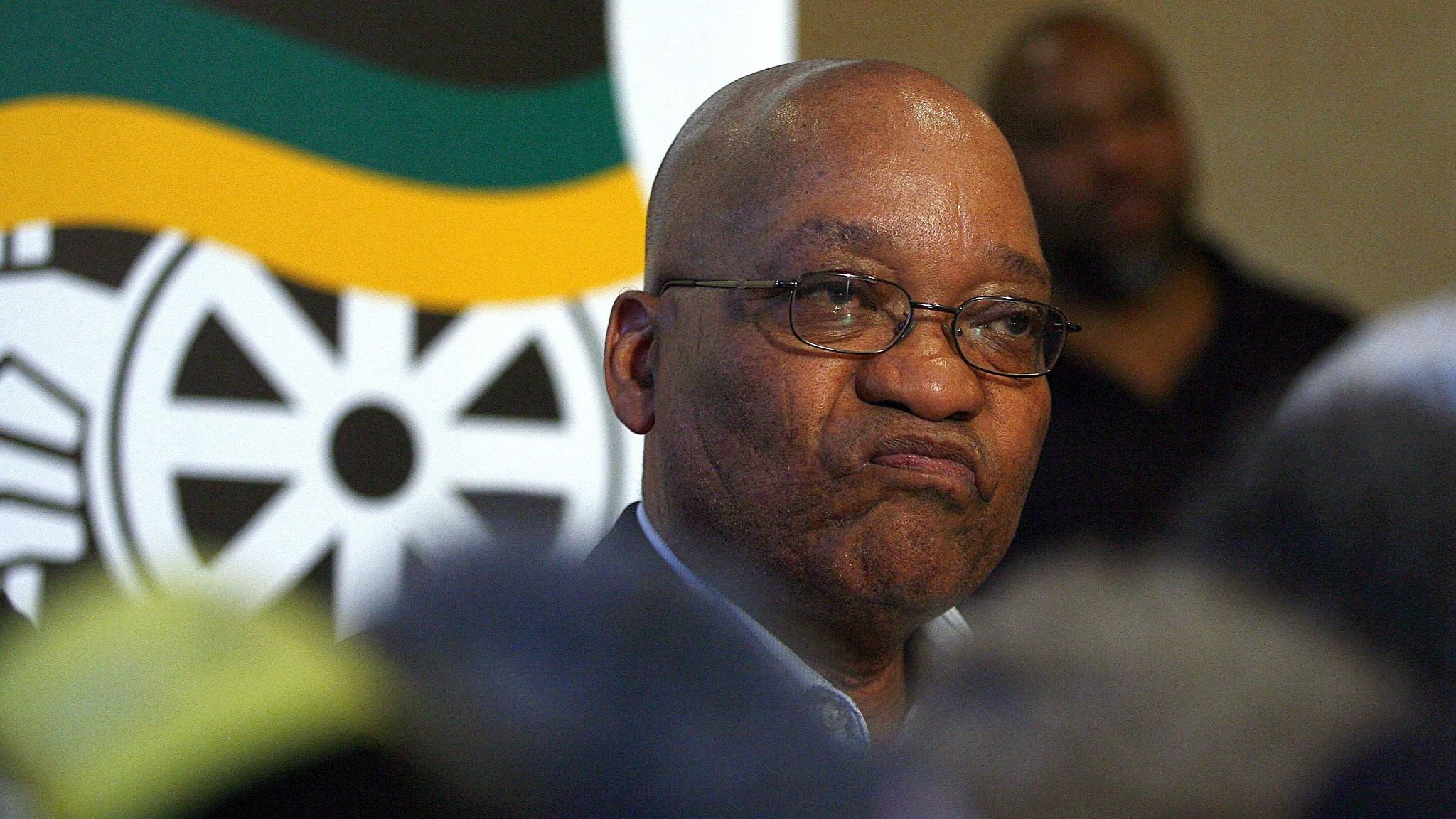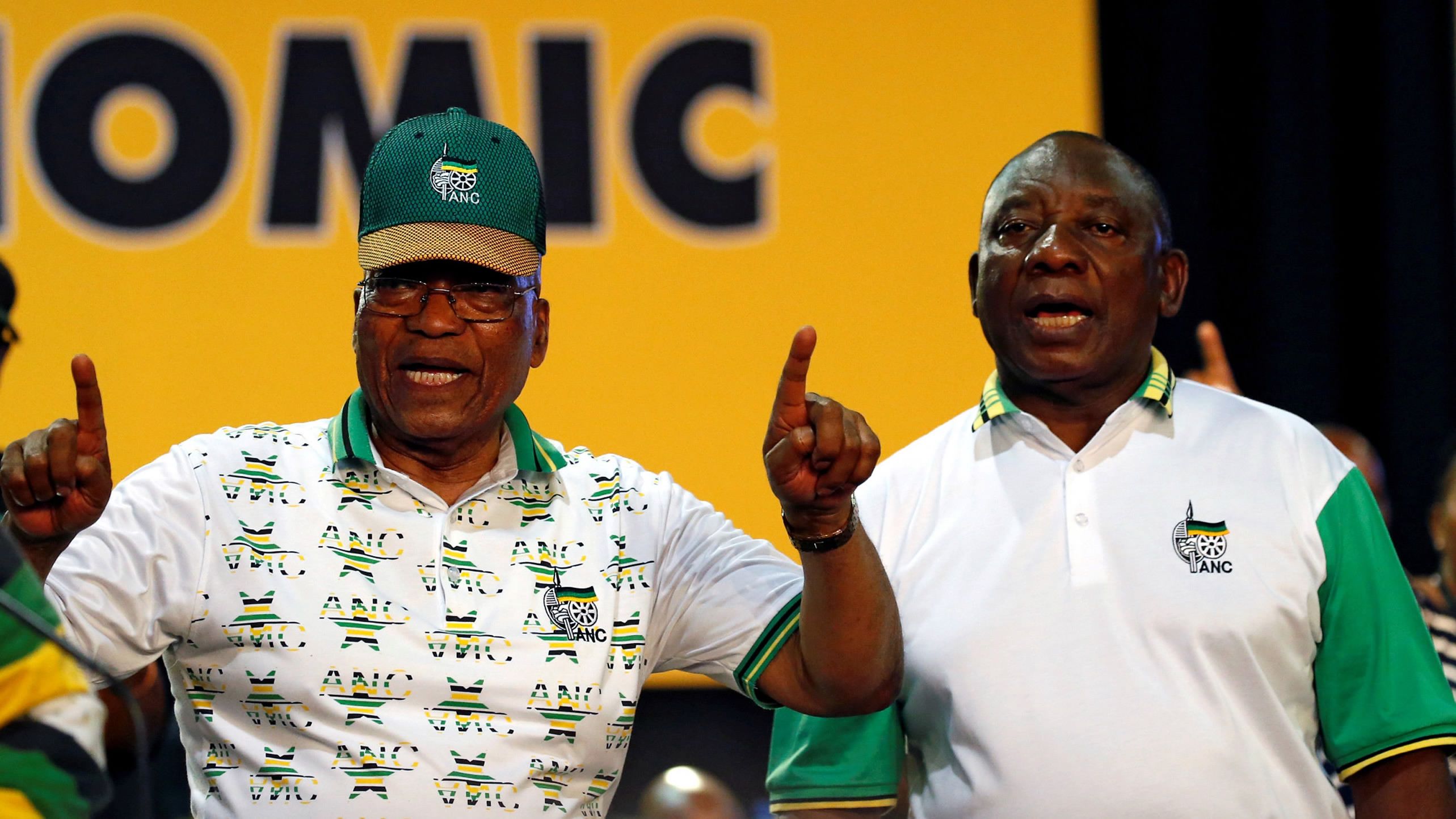
Politics
14:24, 14-Feb-2018
Zuma's judgment day: What are South African president's options?
By John Goodrich

South African President Jacob Zuma is expected to respond on Wednesday to an order from his African National Congress (ANC) party to step down as head of state.
The ANC said on Tuesday that retaining Zuma, who has been implicated in several corruption scandals, could "erode the renewed hope and confidence among South Africans."
Read more: ANC moves to remove Zuma
Read more: Ramaphosa waits in wings
The South African police raided the family home of businessmen friends of Zuma early on Wednesday amid a probe into allegations that the family used their links with the president to win state contracts and influence Cabinet appointments.
A power struggle over the presidency has broken into the open since Cyril Ramaphosa was elected ANC leader in December.
The “recall” order is a party matter which Zuma has no constitutional obligation to obey, however, and the ANC has given him no firm deadline to go.

South Africa's President Jacob Zuma sings next to the newly elected president of the ANC Cyril Ramaphosa during the 54th ANC National Conference in Johannesburg, South Africa, December 18, 2017. /Reuters Photo
South Africa's President Jacob Zuma sings next to the newly elected president of the ANC Cyril Ramaphosa during the 54th ANC National Conference in Johannesburg, South Africa, December 18, 2017. /Reuters Photo
The terms of his exit remain unclear, but time is ticking against the dignified exit the party was hoping to engineer.
The presidency has refused to confirm media reports Zuma will make a televised statement in response to the “recall” order.
What are the options?
Immediate resignation
The ANC wants Zuma to leave immediately. ANC Secretary General Ace Magashule said on Tuesday that the 75-year-old had “agreed in principle” to resign and the president’s departure was "an urgent matter so it should be treated with urgency.”
However, Zuma has fought hard against calls for him to stand down and is thought to be seeking a compromise. Local media reported that he wanted an exit deal that included covering his legal fees from court battles.
Delayed resignation
Zuma has asked the ANC to give him a notice period of three to six months. The request was rejected, but the president could try to force the issue. In such a scenario, the ANC could put forward a no-confidence vote in parliament.
Stay in office
Despite the overwhelming pressure on Zuma to stand down, he could try to stay in office until elections in 2019. He still has allies within the party and has stubbornly refused to give much ground so far, but the weight of opinion within the ANC appears to have shifted firmly against him. An attempt to cling to power would also likely lead to a no-confidence vote.
No-confidence vote
A no-confidence vote has already been called by opposition party the Economic Freedom Fighters for February 22. Some local media reports suggest ANC lawmakers have already decided to bring forward their own motion in parliament.
“When you resist you leave us no choice but to let you fry in the vote of no confidence because it means you do not respect the organization,” Gwede Mantashe, the ANC chairman, said.

SITEMAP
Copyright © 2018 CGTN. Beijing ICP prepared NO.16065310-3
Copyright © 2018 CGTN. Beijing ICP prepared NO.16065310-3